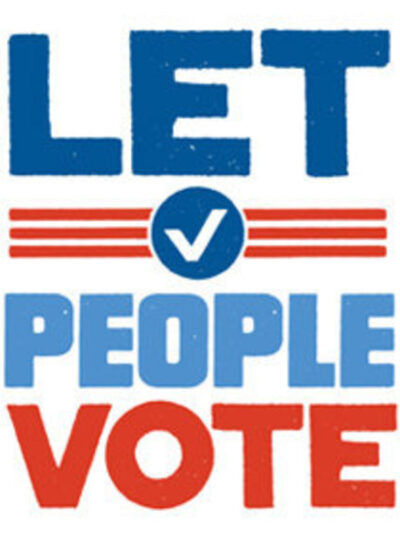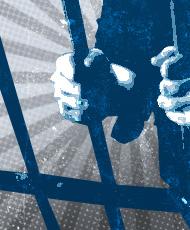News & Commentary
Nov 19, 2014
What the numbers tell us about students with disabilities
On October 21 the U.S Education Department’s Office for Civil Rights issued guidance to schools reinforcing the fact that bullying is not to be tolerated in our schools. The guidance included a reminder that this applies to those students with disabilities. Section 504 of the Rehabilitation Act and Title II of the Americans with Disabilities Act outline school’s responsibilities to take immediate action to investigate any allegations of bullying and to take steps to stop the bullying and ensure prevention of any reoccurrence. All programs that receive federal funding are mandated to bar discrimination on the basis of disability.

Oct 28, 2014
Are you ready for Election Day?
With less than a week until Election Day, it’s important to remember that every vote counts! In order to participate in the democratic process all voters need to understand the rules in our state, register on time, and show up at the correct polling place. Follow these steps to make sure can vote in this year’s election:

Oct 17, 2014
Marriage Equality Comes to Wyoming
Today, U.S. District Judge Scott Skavdahl declared Wyoming’s ban on same-sex marriage unconstitutional

Sep 30, 2014
It's time to talk about militarized policing
The shooting of an unarmed teen in Ferguson, Illinois brought the reality of the militarization of local police to the forefront of the nightly news and front pages of our newspapers. The ACLU has been investigating this issue, and in June of this year, published the report War Comes Home: – The Excessive Militarization of American Police.

Jul 14, 2014
10th Circuit weighs in on the freedom to marry
Two weeks ago, in Kitchen v. Herbert, the 10thCircuit Court of Appeals struck down Utah’s constitutional ban on same-sex couples’ ability to marry. The court held that “The Fourteenth Amendment protects the fundamental right to marry, establish a family, raise children, and enjoy the full protection of a state’s marital laws.”

Jul 01, 2014
ACLU of Wyoming goes to Cody
Last week the ACLU of Wyoming staff attended the 26th Annual Conference of the National Consortium on Racial and Ethnic Fairness in the Courts hosted by the Heart Mountain Wyoming Foundation in Cody. Keynote addresses from Honorable Judge Lance Ito, former U.S. Secretary of Transportation Norman Mineta, and former U.S. Senator Alan Simpson set the tone for the entire conference. Each of them spoke about their experiences with Heart Mountain, and detailed how these experiences impacted their respective professional careers.

May 28, 2014
Lock ‘Em Up and Throw Away the Key
We believe that the character of society should be judged on how we treat our most vulnerable members. The ACLU of Wyoming advocates for the safe and humane treatment of prisoners – both for their sake while they are incarcerated and for society’s sake when they are released.

Mar 19, 2014
2014 Budget Session: Legislative Wrap-Up
The Wyoming Legislative session ended last week on a disappointing note with Representatives Bob Nicholas (R- Cheyenne) and Tim Stubson (R-Casper) destroyingSF 28 Post- Conviction actual innocence and SF30 Compensation for persons exonerated based on DNA evidence. Rep. Nicholas amended both bills to include onerous hearing provisions that indicated that he was on a crusade to ensure that those wrongly incarcerated would not be compensated for the miscarriage of justice. The House members refused to compromise on the amendments in the conference committee which led to both bills being indefinitely postponed. The Casper Star-Tribune, Wyoming Tribune Eagle and WyoFile all wrote excellent articles on this travesty. Both bills started with good support on introduction and an understanding with most legislators and observers that the bills were needed, if not long overdue. It is frustrating to see such willful pique in legislators.

Mar 06, 2014
ACLU of Wyoming statement of support on marriage lawsuit, Courage v. Wyoming
Yesterday, four couples and Wyoming Equality filed the first-ever challenge to Wyoming’s laws on marriage in the case of Courage v. Wyoming. While we are not directly involved in this lawsuit, the ACLU of Wyoming stands in solidarity with Wyoming Equality and the plaintiffs who are arguing that current law violates the Wyoming’s Constitution’s guarantee of equal protection and due process.

Stay Informed
Sign up to be the first to hear about how to take action.
By completing this form, I agree to receive occasional emails per the terms of the ACLU’s privacy statement.
By completing this form, I agree to receive occasional emails per the terms of the ACLU’s privacy statement.
